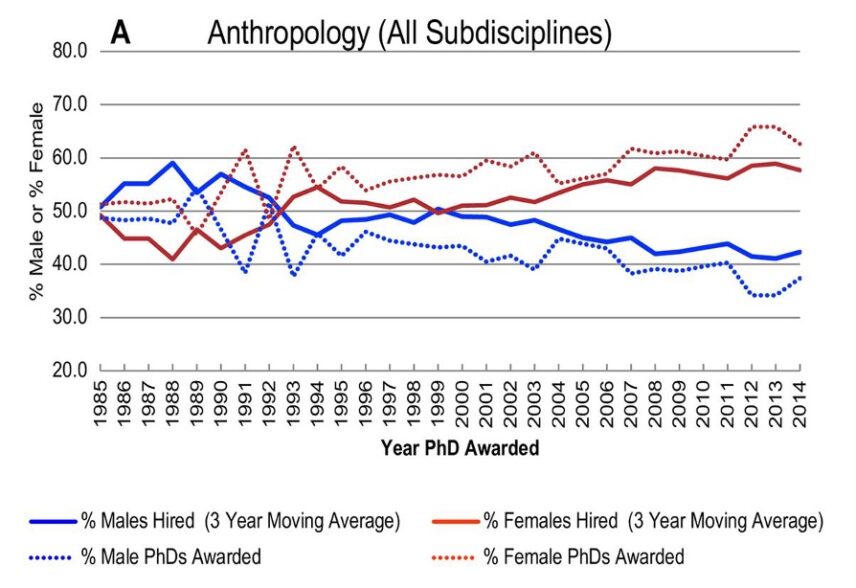Article begins
Anthropology has long been celebrated as a discipline that offers profound insights into human cultures, societies, and behaviors. Its holistic approach and emphasis on reflexivity have contributed significantly to our understanding of the human experience. As we navigate the complexities of the twenty-first century, anthropology faces an ever-evolving landscape that presents challenges and opportunities for renewal and growth.

The Paradox of Anthropological Narrative
Within anthropological circles, there’s often an unspoken assumption that the value of our discipline is self-evident and unsurpassed. This narrative, while bolstering internal cohesion, may inadvertently create barriers to interdisciplinary collaboration and public engagement. In conferences and private conversations, it’s not uncommon to hear disparaging remarks about other disciplines, particularly those in business, technology, and engineering. This attitude raises a crucial question: have we, as anthropologists, who pride ourselves on speaking for the other, lost our capacity to work with others?
The corollary to this narrative is the belief that anthropology is the missing ingredient in solving complex societal problems. However, this assumption is at odds with the external reality facing our discipline. If anthropology is indeed the panacea for societal ills, why aren’t more anthropologists “in the room” where decisions are made? And why isn’t the value of anthropology already established and self-evident to those outside the field?
Crises of Legitimacy and Employability
As we discuss in our edited volume, EmTech Anthropology: Careers at the Frontier, the disconnect between internal narrative and external perception has led to several existential crises of legitimacy for anthropology. This issue has manifested in troubling ways, particularly in the realm of public policy and education. In recent years, we’ve seen government officials openly questioning the value of anthropological studies. For example, both in Florida and in Mississippi, the relevance of anthropology has been publicly challenged in the state’s educational systems, raising doubts about the worthiness of state funding.
Perhaps even more alarming is the trend of universities dismantling their anthropology departments. Respected institutions, including Ithaca College, Howard University, Sheffield University, and the University of Western Australia, have made the drastic decision to shutter their anthropology programs. These closures aren’t isolated incidents; rather, they signal a growing institutional skepticism about the practical value and real-world applicability of an anthropological education in today’s job market and society.
Compounding these challenges is an academic employability crisis within the field. Since 2007, there has been a marked decline in the number of anthropologists hired for academic roles. This trend is not merely a matter of statistics; it has real, often devastating consequences for individuals pursuing careers in anthropology. A recent study by the European Association for Social Anthropologydetailed issues of personal stigma, mental health struggles, and enduring financial hardship, which are increasingly common among anthropologists unable to secure stable academic positions. Examples of such struggles abound, including in a recent American Ethnological Society essay, as well as this AnthroNews piece documenting findings from a focus group the Anthropology Career Readiness Network conducted.

The “adjunctification” of labor in academia has also exacerbated these problems. Once considered an exception, the reliance on adjunct faculty has become the norm across many national contexts. This shift towards precarious employment disproportionately affects women, further entrenching gender inequalities within the discipline.
The Need for Adaptation
These challenges paint a stark picture of a discipline at a crossroads. While we firmly believe in the tremendous value that anthropology offers to humanity—its difficult-to-master mindset and vital contributions to understanding societal challenges—we must also confront the reality that our current trajectory is unsustainable.
Entrenched institutional dogmas and highly institutionalized dynamics within academia often dismiss and underestimate the trajectories of a discipline rooted in experimentation, improvisation, and interdisciplinarity. Yet, it is precisely this kind of adaptive approach that anthropology needs to regain its relevance and secure its future.
As we face these challenges, it becomes clear that a reimagination of anthropology’s role in academia and society is not just desirable—it’s essential for the survival and thriving of our discipline.
A Call for Reimagination
To address this crisis, anthropology must undergo a profound reimagination of its role in society. This reimagination should focus on several key areas:
- Rethinking Education: Anthropology programs should evolve to equip students with valuable skills both within and outside of academia, preparing them for diverse career paths. To start, they should also acknowledge that careers outside the academy exist.
- Moving from Critique to Action: While critique remains important, anthropology must also focus on developing and implementing solutions to its identified issues.
- Articulating Value: Anthropologists must learn to clearly communicate the value of their work to a broader audience, including policymakers, business leaders, and the general public.
- Embracing Collaboration: Anthropology should seek out interdisciplinary collaborations that can enhance its impact and relevance, rather than dismissing other disciplines.
A Possible Path Forward
In EmTech Anthropology, we offer a roadmap for this reimagination. It challenges anthropologists to critically examine their assumptions, reconsider their societal role, and shift from critique and insularity to collaboration and action.
By embracing these changes, anthropology can regain its relevance and applicability in the eyes of politicians, administrators, entrepreneurs, business leaders, and, most importantly, the public. The field has the potential to offer unique and valuable insights into the complex challenges facing our world today, from climate change to social inequality to the ethical implications of AI.
The crisis in anthropology is real, but it also presents an opportunity for renewal and growth. By confronting current challenges and reimagining its future, anthropology can emerge stronger, more relevant, and better equipped to contribute to solving the pressing issues of our time. The choice now lies with the anthropological community: will it cling to old paradigms and risk further marginalization, or will it embrace change and chart a new course for the discipline? The future of anthropology hangs in the balance, and the time for action is now.

